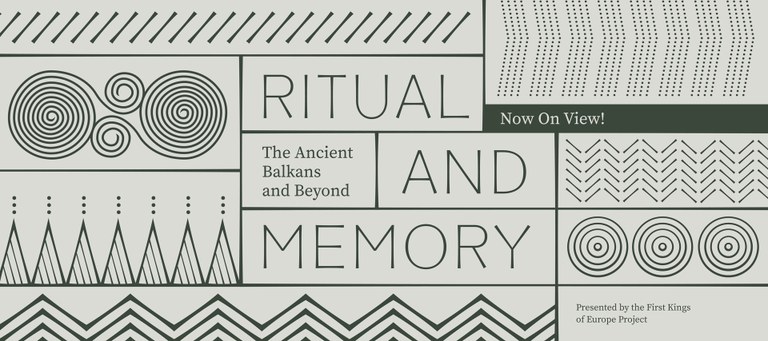A Conversation with the Curators
Attila Gyucha, William Parkinson
Field Museum
This lecture will take place online; a Zoom link will be provided via email to registered participants.
Registration is required at THIS LINK.
Please join us as Clare Fitzgerald, Curator of ISAW’s Ritual and Memory: The Ancient Balkans and Beyond exhibition, hosts a conversation with Attila Gyucha (University of Georgia) and William Parkinson (Field Museum of Natural History) as they discuss the First Kings of Europe project. Attila and Bill will discuss the motivation and concepts behind the project, as well as some of the challenges they faced while collaborating with the dozens of institutions that loaned objects for the North American tour.
Attila Gyucha's research focuses on the evolution of nucleated settlements from a cross-cultural and cross-temporal perspective, primarily in regard to early farming societies in Southeast Europe. Recently, he's studied the motivation and nature of the Mongol conquest of the Hungarian Kingdom with a specific focus on rural settlements on the Great Hungarian Plain. He explores how these settlements, whose evolution underscores the complexity of social processes, were established, evolved, and abandoned within their local landscape. This research is complemented by his interest in comparative examinations on sustainability and resilience as those concepts relate to the trajectories of population centers throughout history.
William Parkinson is a specialist in European and Eastern Mediterranean Prehistory. His anthropological research explores the social dynamics of early village societies and the emergence of early states. He is the American Director of the Körös Regional Archaeological Project, an international, multi-disciplinary research project aimed at understanding the social changes that occurred on the Great Hungarian Plain throughout the Holocene. He is also the American Co-Director of The Diros Project, a multi-disciplinary regional research project that explores the social changes that occurred on the western Mani Peninsula of southern Greece throughout the Pleistocene and Holocene.
Ritual and Memory: The Ancient Balkans and Beyond is organized in partnership with the Field Museum's First Kings of Europe project and has been made possible in part by a major grant from the National Endowment for the Humanities: Democracy demands wisdom.
This exhibition at the Institute for the Study of the Ancient World is made possible by generous support from Nellie and Robert Gipson and the Leon Levy Foundation. Additional funding provided by The Gilbert and Ildiko Butler Foundation and James H. Ottaway Jr.
Please check isaw.nyu.edu for event updates.
ISAW is committed to providing a positive and educational experience for all guests and participants who attend our public programming. We ask that all attendees follow the guidelines listed in our community standards policy.
Image: Fibula; Bronze, Vicinity of Gračac, Croatia, 500-300 BCE, Archaeological Museum in Zagreb, Zagreb, Croatia, Inventory Number:P-19993, Photo © Field Museum, photographer Ádám Vágó
